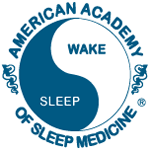A new study from Australia tested the effectiveness of a 16-week exercise and diet program for people with obstructive sleep apnea. The results were published today in the Journal of Clinical Sleep Medicine.
The study involved 12 people with an average age of 42 years; nine of the participants were women. They had an average body mass index of 36.1; a BMI of 30 or higher is considered “obese.”
They also had an average apnea-hypopnea index of 24.6 breathing pauses per hour of sleep; an AHI of 15 to 30 is considered “moderate” sleep apnea.
The program used Optifast, a very low-energy diet. Participants also followed a supervised exercise schedule; this included both aerobic and resistance training.
Results show that participants lost an average of about 27 pounds. Some typical OSA symptoms also improved; these included snoring, daytime sleepiness and mood.
But weight loss did not cure OSA. It did reduce the average AHI by 25 percent; but participants still had moderate sleep apnea with an average AHI of 18.3
“Although there was some improvement in sleep disordered breathing, it was not seen in all patients and was not proportional to the degree of weight loss,” lead author Dr. Maree Barnes told the AASM.
Follow-up at 12 months showed that all but one person who completed the program had regained some weight. But half of the participants were able to maintain weight loss of at least seven percent.
The AASM recommends dietary weight loss as one treatment strategy for people who are obese and have sleep apnea. But weight loss should be combined with another treatment such as CPAP or an oral appliance.
Read more about weight loss and sleep apnea. Learn more about women and sleep apnea risk.
You should talk to your doctor to develop a healthy weight-loss plan that is right for you. For help with sleep apnea you should contact an AASM-accredited sleep disorders center in your area.
Thursday, October 15, 2009
Subscribe to:
Post Comments (Atom)







No comments:
Post a Comment